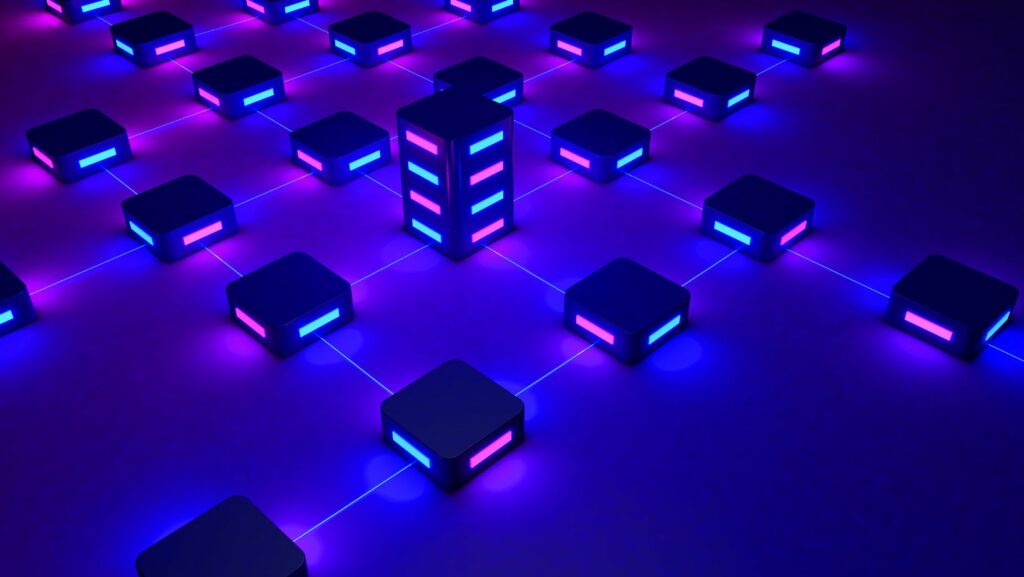The Impact of Blockchain Healthcare

Blockchain healthcare is a distributed database that allows for secure, transparent and tamper-proof storage of data. This type of database is often used for healthcare applications because it provides a secure way to store confidential patient data. Blockchain healthcare can also be used to create immutable audit trails for clinical trials or other research studies.
What is Blockchain?
The easiest way to understand blockchain is to think of it as a digital ledger. When someone transact something, anything of value, it is recorded on this ledger. Because blockchain is a distributed database, or ledger that is spread across a network of computers, there is no central authority that controls it. This decentralization is what makes blockchain so secure. Transactions are verified by the network of computers (or nodes) and each transaction is timestamped and added to the chain in chronological order. This way, it becomes very difficult to tamper with the transactions because you would need to change the entire chain in order to do so.
Now that we know what blockchain is, let’s take a look at how it can be applied to healthcare.
There are many potential applications for blockchain technology in healthcare. One example is using blockchain to create a secure and decentralized patient health record (PHR) system. By managing PHRs on a blockchain, patient privacy could be better protected because their data would not be centrally stored and controlled by any one entity. In addition, because blockchain transactions are tamper-proof, patient data could not be altered without the consent of both the patient and their physician. Blockchain could also be used for managing medication records and tracking medical supplies throughout the supply chain from manufacture to delivery to the patient.
Another potential application for blockchain in healthcare is insurance claims processing. Currently, insurance claim processing is often slow and inefficient due to the need for manual documentation and approvals. By automating claims processing on a blockchain platform, insurers could reduce fraud and speed up claims adjudication. In addition, policyholders could use smart contracts to automatically file claims when they receive treatment from an in-network provider.
Blockchain has the potential to transform healthcare by increasing transparency and efficiency while protecting patient privacy. While there are still some challenges that need to be addressed before widespread adoption can occur, we believe that blockchain will play a major role in shaping the future of healthcare
What is Blockchain Healthcare
Heading: What is Blockchain Healthcare?
Expansion:
At its core, healthcare is the study and practice of diagnosing, treating, and preventing illnesses. It encompasses a wide range of specialties and sub-disciplines, from general practitioners and pediatricians to surgeons and oncologists. In recent years, there has been a growing focus on preventative care, with an emphasis on maintaining good health through lifestyle choices rather than simply reacting to illness.
With the advent of blockchain technology, there is a new opportunity to revolutionize healthcare. Blockchain healthcare is an emerging field that applies the principles of blockchain technology to the healthcare sector. By creating a secure, decentralized platform for storing and sharing medical data, blockchain healthcare has the potential to improve patient care, reduce costs, and increase transparency in the healthcare system.
How is Blockchain Healthcare Being Used?
Healthcare is one of the most important applications of blockchain technology. The use of blockchain in healthcare can help to improve the quality of care, reduce costs, and increase access to care. In this article, we will explore how blockchain healthcare is being used and the impact it is having on the healthcare industry.
Patient Data Management
Blockchain healthcare is being used in a variety of ways, but one of the most impactful is in the area of patient data management. Blockchain provides a secure, decentralized way to store and share patient data, which can help to improve care coordination and reduce errors. For example, if a patient is seen by multiple doctors, each doctor can access the patient’s records on the blockchain and add their own notes. This would then be available to all other authorized users, making it easier for everyone to keep track of the patient’s progress and treatment. In addition, because blockchain is tamper-resistant, it can help to ensure that data is not modified or deleted without authorization, which can help to prevent fraud and errors.
Clinical Trials
The use of blockchain in clinical trials can help to improve the accuracy and transparency of data. By using a distributed ledger, all parties involved in a clinical trial – from the sponsor to the investigator to the patient – can have access to the same data, which reduces the chances of human error or fraud. In addition, because blockchain is immutable, any changes to the data can be easily tracked and audited, providing an additional level of transparency and accountability.
Blockchain healthcare can also help to speed up clinical trials by streamlining the process of recruiting patients and tracking their progress. For example, if a patient’s medical records are stored on a blockchain platform, they can be easily shared with researchers conducting a clinical trial. This would save time as well as reduce the costs associated with patient recruitment.
The use of blockchain in clinical trials is still in its early stages, but there is potential for it to have a transformative impact on the healthcare industry.
Prescription Drug Tracking
Prescription drug tracking is one of the most promising applications for blockchain healthcare. The vast majority of prescription drugs are counterfeit, and patients often have no way of knowing if their medication is real or fake. Blockchain technology can help to solve this problem by providing a secure, decentralized way to track prescription drugs from manufacture to sale.
By using blockchain, pharmacies and manufacturers can ensure that each prescription drug is authentic and has not been tampered with. This will help to protect patients from taking fake or dangerous drugs, and will also help to reduce the cost of medication by cutting out the middlemen who often sell counterfeit drugs.
The Benefits of Blockchain Healthcare
Blockchain healthcare is a exciting new development that has the potential to revolutionize the healthcare industry. The benefits of blockchain healthcare are many and varied, but some of the most notable include increased security, improved data management, and reduced costs.
Improved Data Security
One of the most pressing issues facing the healthcare industry today is data security. With the increasing digitization of patient records, there is a greater risk of sensitive information being leaked or hacked. Blockchain technology can help to address this problem by providing a secure and decentralized way to store data.
Blockchain healthcare systems can be used to create a tamper-proof audit trail for patient records. This would make it much more difficult for criminals to alter or delete data, as every change would be recorded on the blockchain. In addition, blockchain technology could be used to encrypt patient data, making it even more difficult for unauthorized individuals to access it.
Improved data security would not only protect patients’ privacy, but it would also help to ensure the accuracy of medical records. This could potentially prevent errors such as incorrect diagnosis or incorrect treatment.
Enhanced Data Interoperability
One of the main benefits of blockchain healthcare is enhanced data interoperability. When patient data is stored on a blockchain, it can be shared with authorized parties in a secure and efficient way. This is because blockchain healthcare platforms use digital signatures and encryption to authenticate and authorize access to data. As a result, patients can have greater control over their own health data, and health care providers can more easily share data between different organizations.
Another benefit of blockchain healthcare is that it can help to reduce costs. For example, if health care providers need to share patient records with each other, they can do so using a blockchain platform instead of having to use expensive and time-consuming methods such as postal mail or fax. In addition, because blockchain platforms are decentralized, they can eliminate the need for middlemen such as insurance companies. This could potentially lead to lower health care costs for both patients and providers.
Increased Efficiency
One of the key benefits of blockchain healthcare is increased efficiency. With traditional healthcare systems, there are often a lot of middlemen involved in managing patient data and claims. This can lead to delays and inefficiencies. With blockchain, all of this information can be stored in a decentralized database that is easily accessible to all parties involved. This can streamline the process and make it more efficient.

Another benefit of blockchain healthcare is improved security. With traditional systems, patient data is often stored in central databases that are vulnerable to hacking and data breaches. With blockchain, all of this information is stored in a decentralized database that is much more secure. This can help to protect patient data and privacy.
The Challenges of Blockchain Healthcare
Lack of Awareness
One of the challenges of blockchain healthcare is the lack of awareness of the general public. Blockchain is still a relatively new technology, and many people are not familiar with how it works or its potential applications in healthcare. This lack of awareness can make it difficult to get widespread adoption of blockchain-based solutions.
Another challenge is that blockchain healthcare solutions are often complex and technical. This can make it difficult for non-technical users to understand how they work and whether they would be beneficial for their needs.
Finally, blockchain healthcare solutions can be expensive to develop and deploy. This can make them out of reach for many organizations, particularly small ones.
Limited Adoption
One of the primary challenges facing blockchain healthcare is limited adoption. For the technology to be effective, it needs to be adopted by a critical mass of healthcare organizations. Unfortunately, many healthcare organizations are still reluctant to adopt new technologies, especially those that require a change in business processes. Another challenge is that blockchain technology is still in its early stages of development and there are no standards or guidelines yet for its use in healthcare. This lack of standards makes it difficult for different organizations to interoperate and exchange data.
Technical Challenges
Blockchain technology is slowly gaining traction in the healthcare industry. While there are many potential benefits to using blockchain in healthcare, there are also a number of technical challenges that need to be addressed before the technology can be widely adopted.
One of the biggest technical challenges facing blockchain in healthcare is data privacy and security. Healthcare data is some of the most sensitive data there is, and it needs to be protected from unauthorized access. Blockchain offers a potential solution to this problem, as it can help to create a secure, decentralized database of health information. However, there are still some concerns about how well blockchain will be able to protect healthcare data.
Another technical challenge facing blockchain in healthcare is scalability. The current applications of blockchain technology are mostly small-scale projects. In order for blockchain to be used on a larger scale in healthcare, it will need to be able to handle large amounts of data. This is a challenge that is currently being addressed by developers and researchers working on blockchain projects in healthcare.
Finally, another challenge that needs to be addressed is interoperability. In order for blockchain-based systems to be truly useful in healthcare, they need to be able to communicate with each other and with existing healthcare systems. This is another area where much work needs to be done before blockchain can be fully integrated into healthcare.
The Future of Blockchain Healthcare
Blockchain healthcare is a new and innovative way to store and manage patient data. By using a blockchain, healthcare organisations can create a secure, decentralized, and tamper-proof system for managing patient data. This could potentially revolutionize the way that healthcare organisations manage patient data, and could have a huge impact on the healthcare industry as a whole.
Widespread Adoption
Blockchain healthcare is already starting to see widespread adoption. Numerous startups are springing up all over the world, each with their own vision for how blockchain healthcare can make a difference. Big names in the tech industry are also beginning to invest in blockchain healthcare solutions. With so much interest and investment, it’s only a matter of time before blockchain healthcare goes mainstream.
There are many potential applications for blockchain healthcare. The most obvious is in the area of medical records. Blockchain technology can provide a secure, tamper-proof way to store medical records. This would not only make it easier for patients to access their own records, but also make it easier for doctors and hospitals to share information. There is also potential for blockchain healthcare to be used in clinical trials, prescription drug tracing, and even patient engagement.
The possibilities are endless, and the potential impact of blockchain healthcare is huge. With so much interest and investment, it’s only a matter of time before blockchain healthcare goes mainstream.
Improved Data Security
Blockchain healthcare has the potential to drastically improve data security for patients and healthcare providers alike. With blockchain, patient data would be stored in a decentralized network, making it much more difficult for hackers to access. And since blockchain networks are immutable, patient data couldn’t be tampered with even if it were accessed. This would give patients greater peace of mind knowing that their personal health information is safe and secure.

In addition, blockchain could help healthcare providers comply with data privacy regulations like HIPAA. By using blockchain, healthcare organizations could create a single, secure database of patient information that could be accessed by authorized personnel only. This would streamline the process of complying with HIPAA’s complex rules and regulations and make it easier for healthcare organizations to protect patients’ privacy.
Enhanced Data Interoperability
Blockchain healthcare has the potential to greatly enhance data interoperability in the healthcare industry. By creating a decentralized platform for health data, blockchain healthcare can enable the secure and efficient sharing of health data between patients, doctors, and other providers. This enhanced data interoperability can help to improve the quality of care and reduce costs by making it easier for providers to access and use relevant health data.


